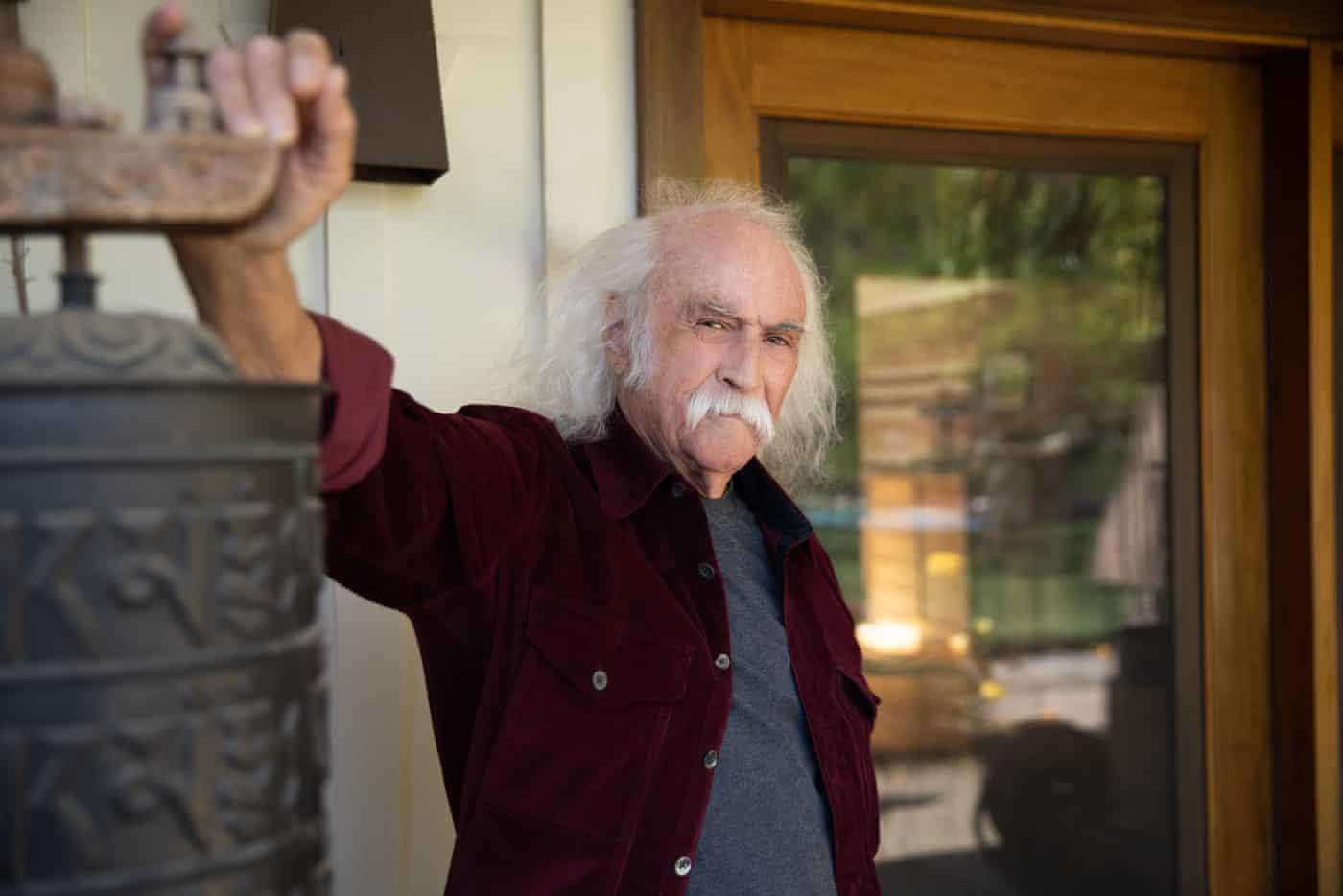Reflections: David Crosby

Photo credit: Anna Webber
***
If you Google search “David Crosby late-career renaissance,” then you’ll find numerous interviews, reviews and think-pieces marveling at the songwriter’s monumental creative run in the 2010s.
One would think that the rock legend would be bored by that compliment by this point—or even annoyed by the implication of surprise on the writers’ part. But as he settles into a Zoom chat, a couple weeks after the release of his eighth solo LP, For Free, Croz sounds equally stunned that he’s reached such a lofty peak at his age—during a season of life when most musicians have either retired or become shadows of their former selves.
“Tomorrow I’m gonna be 80,” he says. “When you get this old, you’re insecure about it. You think, ‘Golly, am I done?’ For some reason, and God alone knows why, I’m the lucky one. It’s still working.”
But Crosby is also clear-eyed about his hot streak, a five-LP stretch that began with 2014’s Croz and has included pivotal partnerships with his son, multi-instrumentalist James Raymond, and Michael League, bandleader of jazz-fusion collective Snarky Puppy. In addition, he also launched Freak Flag Flying with noted journalist, Dead historian and onetime Relix contributor Steve Silberman for Osiris Media, the company founded by Phish songwriter Tom Marshall and RJ Bee. This network of co-writers and collaborators has kept him hungry, helping side-step the pitfalls of complacency that so many artists encounter.
“Normally, when you get as old as I am, you peter out,” he says. “Maybe you do some good work, but it’s more occasional and usually lighter weight. But I’ve been writing with great people. I had a really good experience early on writing [Crosby, Stills & Nash’s] ‘Wooden Ships’ with [Stephen] Stills and [Paul] Kantner. That stuck in my head. The chemistry I have with the people I’m writing with now widens the potential. The other guy always thinks of something you wouldn’t—always. And, frankly, if you listen to the records, I think I’m doing really well.”
This renaissance arrived at the perfect time: Crosby hasn’t played with Stills and Graham Nash, his former bandmates in Crosby, Stills & Nash, since late 2015. “I thought I was gonna be really bummed, that my life would be much harder without CSN,” he says. “But it wasn’t any fun doing CSN anymore. So to have it turn out as well as it has is just a freaking miracle, man. It’s wonderful.”
For Free, like his other recent records, thrives on the “immense chemistry” he’s developed with Raymond, dating back to their prior collaboration in the band CPR with guitarist Jeff Pevar. (“When my son came along and we wrote our first one together, [1998’s] ‘Morrison,’ I realized we were gonna be a force,” he says.) Raymond produced the new LP, playing much of its breezy, jazz-folk instrumentation and co-writing most of the songs; he even earned a sole credit on the stunning piano ballad closer “I Won’t Stay for Long,” which Crosby singles out as the centerpiece. “Holy shit, what a song,” he says. “It’s a fucking miracle. It’s a beautiful track, and it made me sing the fuck out of it.”
Crosby and Raymond wrote mostly by ping-ponging ideas back and forth: Sometimes the singer sent over a lyrical idea, leaving his son to flesh out a musical arrangement. Other times a chord sequence would simply spark some words. But they also roped in a few other contributors, winding up with some of the album’s most affecting moments: Michael McDonald, whom Crosby calls “the best fucking singer in the country,” added a reliably pitch-perfect harmony on lead single “River Rise” and even helped finish off the oceanic words; Americana artist Sarah Jarosz contributed a haunting vocal to a cover of Joni Mitchell’s “For Free.”
“Holy shit, can that girl sing,” he says. “You don’t do half-ass in bluegrass. You have to be absolutely perfect or you’re not in the band. She’s been singing like that since she was nine years old. I asked James to [make] me a brand new arrangement of ‘For Free’ on piano, and he made this beautiful, evocative, lyrically delicious fucking track. I sent it to [Sarah], and she sent it back to me with that harmony on it. I nearly lost my fucking marbles, man. She’s so goddamn good. She just absolutely killed it.”
Meanwhile, Steely Dan’s Donald Fagen kicked off the strutting, brassy “Rodriguez for a Night” by sending over a set of lyrics that recounted a mysterious, romantic entanglement.
“We sat down with it and said, ‘Are we gonna go full Steely Dan with this thing?’ And we said, ‘Absolutely!’” Crosby says. “We told Donald, ‘We’re gonna do our best imitation of you.’ I’ve been a fan since I first heard ‘Rikki Don’t Lose That Number.’ I really love him and his work. It’s inspired me, and it’s made me better as a musician. That he was nice enough—and had enough confidence—to send us a set of lyrics? It’s like being given a medal.”
Creating this expanded musical family, Crosby says, has “extended [his] useful life as a writer by about 10 years”—a fact he refuses to take for granted.
“I don’t know what you do other than be grateful,” he says with a laugh. “This isn’t some clever plan of mine. It’s just what happened. And I’ve gotta be smart and grateful enough to realize that’s what happened and say, ‘Fine, if it’s gonna work, I’m gonna fuckin’ work it.’”




















